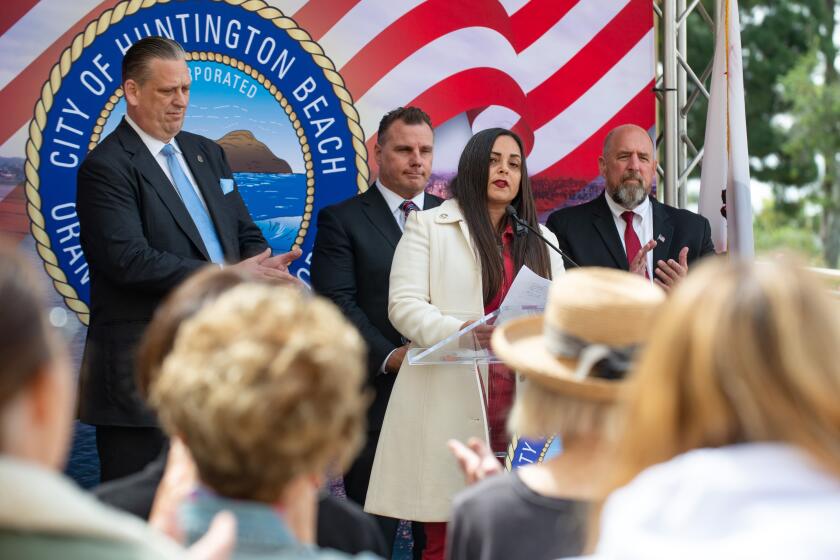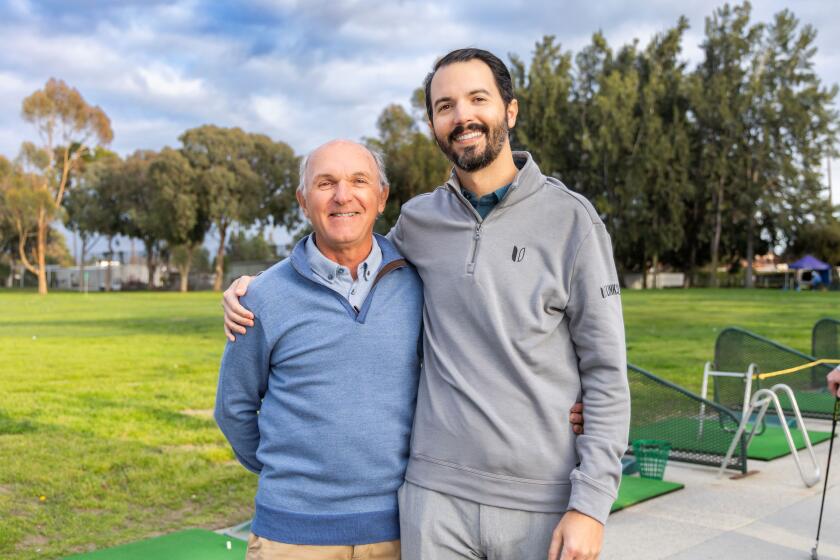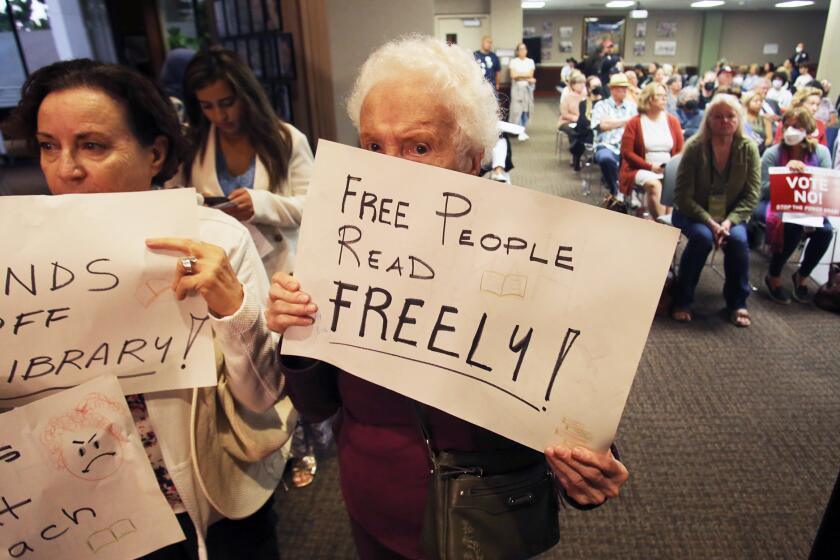Column: Apartheid book and visit to the South provide an education on institutionalized racism
I recently traveled to Charleston, S.C., a beautiful, historic city that oozes charm and Old World gentility.
But in spite of enjoying all that loveliness, I also harbored strongly conflicted feelings because of the city’s former prominent role in our nation’s shameful past of slavery and segregation — a history that continues to reverberate today.
The tourist sites I visited — including a museum on slavery located where the city’s largest slave market once stood; a gorgeous plantation that was built on the back of slave labor; a thriving harbor that was once the biggest recipient of our nation’s slave trade; Fort Sumter, where the first shots of the Civil War were fired — the echoes from the past were stark and haunting.
Today, Charleston in many ways strives to confront its ugly legacy. At least that was the impression I gleaned from the straightforward manner in which guides at these sites openly acknowledged and discussed this history.
Yet I winced at the sight of a statue honoring Confederate soldiers; a full reckoning remains elusive.
Strangely, this all felt very personal to me — strange because I’m a white woman with a comfortable life in Newport Beach and with no direct connection, that I’m aware of, to the antebellum South.
But my feelings may have been stirred because of a project with which I’ve been involved for the past few years, which has required me to imagine what it’s like to walk in the shoes of someone who was subjected to institutional racism.
I have co-authored the forthcoming book “A Boy Named Courage: A Surgeon’s Memoir of Apartheid” with my friend Dr. Himmet Dajee.
Himmet and I go way back. His wife, Debbie, is a dear friend. Our kids grew up together, and attended the same schools in Newport Beach.
But it was only when I was planning a family trip to Himmet’s native South Africa five years ago that I began questioning him more deeply about his background. From that conversation an idea was born for us to collaborate on a book about his life story, and it has been a fascinating, and at times searingly emotional project.
The book chronicles Himmet’s struggle to overcome apartheid South Africa’s racist structure — as an ethnic Indian, he was considered a nonwhite under the laws of apartheid — to secure an education and establish himself as a cardiac surgeon. It is a tale involving a search for identity, fraught with failure, loss, and tragedy, but ultimately one of love and transcendence.
It’s been a great privilege to work with Himmet to tell his extraordinary story, and I have learned a tremendous lot in so doing. Not only have I learned much about the history of apartheid, I have also been given the opportunity to more fully understand institutional racism’s deep and enduring legacy — how the same echoes from the past that I sensed in Charleston affect who and what we are today.
It has also taught me to examine more carefully my own prejudices — indeed, even to admit to myself that those prejudices exist, despite my somewhat arrogant self-regard as a fair, open-minded person.
Through my work on the book, I have also recognized that I need to be a better listener — a rather ironic realization given that, for a journalist, listening is a big part of the job.
So, for example, when I heard about the recent racial incidents at Cal Poly San Luis Obispo — where, coincidentally, one of Himmet’s daughters is a student — it might have been tempting to dismiss the episodes as misguided hijinks. I’m referring to the two instances of white students appearing in blackface, which stirred outrage and a call by the university for the state to investigate.
To his credit, one of the offending students apologized in a letter to the student newspaper, acknowledging that “growing up white and privileged, I was truly unaware of how insensitive I was to the racial implications of blackface.”
His statement exposes one troubling aspect of race relations today. It’s all too easy for many of us to write off such incidents as harmless and accuse those who are offended of overreacting. But, as this student suggests, perhaps some enlightenment is in order.
And in service of becoming more enlightened, we all need to listen each other — really listen, and strive to understand and appreciate the perspectives of those who have tread far different paths than our own.
It also requires that we acknowledge to ourselves that we’re all just works in progress, and that we can all benefit from an honest, open, respectful accounting of our histories and beliefs.
I consider myself a feminist, for instance, but that doesn’t prevent me from sliding into lazy gender stereotypes at times. Recently, my two sons — who are far more intelligent and principled than I am — questioned whether my use of the term “girl drama” was just a wee bit sexist.
This old feminist felt a wee bit chagrined. But I’m not too old to learn, and to reflect on the roles we can all play in trying to bridge racial, ethnic, religious and gender differences.
As my work on the book and my recent visit to Charleston reminded me, the past is still present. But we don’t have to be slaves to it.
PATRICE APODACA is a former Newport-Mesa public school parent and former Los Angeles Times staff writer. She lives in Newport Beach.
All the latest on Orange County from Orange County.
Get our free TimesOC newsletter.
You may occasionally receive promotional content from the Daily Pilot.




